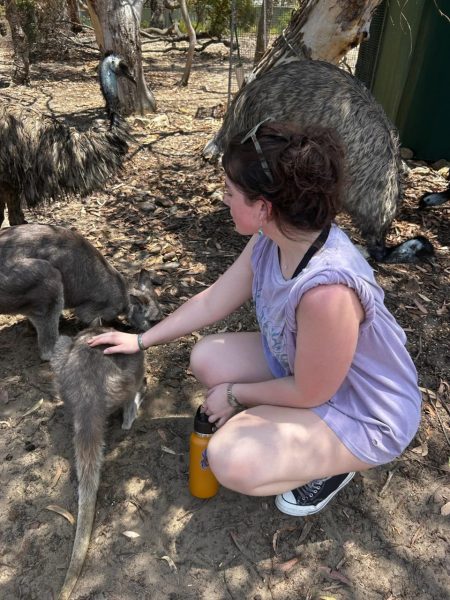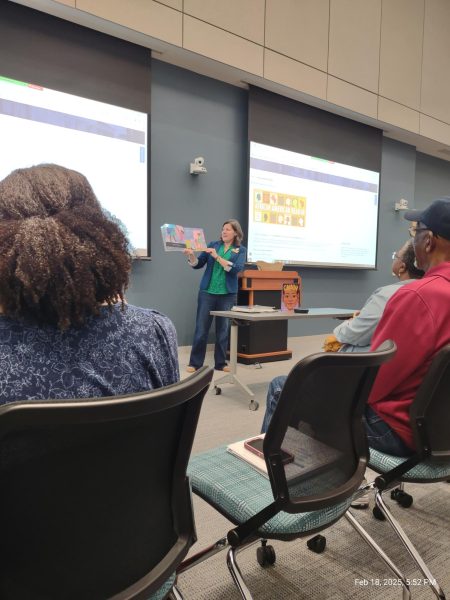Upperman Center director speaks to importance of continuing conversations about race
As Black History Month concludes, the campus is left with a final concern: keeping the conversations about race going.
Dr. Candace Thompson, interim director of the Upperman African American Cultural Center, gave some words of advice to guide UNC Wilmington’s students towards the common goal of racial inclusivity.
As diversity is sought more and more often, “we have to clarify as an institution what that [diversity] means for ourselves, so that we can guide our students, our faculty and our values accordingly,” said Thompson.
Discussions on diversity often trail into the topics of understanding and misunderstanding racial differences. For students like UNCW sophomore Michael Broadhurst, discussions about race among peers are often dismissed or unspoken. “I rarely have those type of conversations [about race],” said Broadhurst.
As a faculty member who has realized the difficulty in having discussions about race within the student body, Thompson noted that she believes there are actually many students on campus who do, in fact, want to talk about racial disputes despite the apparent lack of discussions held.
Thompson said that before tackling the conversations head on, the campus must first identify why there is an issue with bringing up racial conversation.
“Look at the way we’ve talked about race [in the past]… We keep having the same superficial conversations and not the deeper, more sustained conversations,” said Thompson, urging students to recognize the divide.
Broadhurst added that when conversations regarding race do arise, they are typically brief, as someone feels too uncomfortable to continue, and any energy the conversation might have fizzes away.
While Broadhurst felt capable of achieving a stimulating conversation about race, he said that, “a safe environment is definitely key.”
Pushing the idea that having a safe, welcoming atmosphere encourages these types of conversations, Thompson believes the classroom is the core of initiating these conversations.
“I work to create a space where people can respectfully disagree with one another,” said Thompson. For her, the classroom is essential as it provides a platform that does not marginalize or shun students because of their perspectives, thus allowing for the creation of “those much larger inclusive spaces.”
Broadhurst agreed, stating, “Faculty play an important role because they should be able to facilitate and encourage these types of discussions.”
While having a safe space has been crucial in the steps towards reaching inclusivity, Thompson also encourages students to evaluate the goals and outcomes of having these conversations about race.
“What do we want to accomplish in this dialogue? What are some outcomes we want to have? What are the rules for engagement so that people can truly feel that they can come and engage in it?” asked Thompson.
Located on the second floor of Fisher University Union, the Upperman Center is open to interested students Monday through Friday, anytime between 8 a.m. and 5 p.m. Upperman encourages all students, regardless of race or background, to come learn more about race and racial differences.
“It is a place for all students to come,” said Thompson.
“[For] students who are willing and able to use their voice, there is no greater learning experience,” said Thompson, thus reminding the student body of the ultimate gain from these exchanges.











